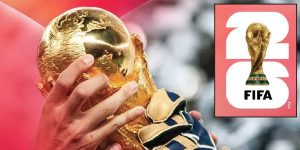
Commentary by Chara
The sun is important to your health.
But too little exposure to the sun can be harmful. So can too much.
Specifically, as multiple health care experts have stated, overexposure to the sun’s ultraviolet B radiation can harm your skin, causing a sunburn and perhaps premature aging. Overexposure also can increase your risk of developing skin cancer.
Here are some tips to help you protect your skin from overexposure to the sun, particularly during these hot days of summer:
*Use sunscreen: Sunscreen is a must if you’re going to be outside, especially if you’ll be outside for several hours. Find a broad spectrum sunscreen with a high sun protection factor (SPF). Look for sunscreen with an SPF of at least 15; however, 30 or higher is preferrable. Use sunscreen after you shower and apply it to the parts of your skin that’ll be exposed to the sun – your face, neck, ears, arms and legs. Try to apply it every four hours, if you’re not swimming or sweating. If you’re swimming or sweating, apply it every two hours.
*Look for sun-protective skin products: In addition to sunscreen, look for lip balms or moisturizers to help you maintain hydration in your skin.
*Wear protective clothing: Try to wear lightweight, loose-fitting clothing that protects your arms and legs. In addition, try to wear a hat or a cap to protect the top of your head and sunglasses to protect your eyes.
*Drink water: This is one of the most important steps you can take if you’re exposed to the sun for long periods. Water will help your body and skin to stay hydrated and prevent sun damage. The Occupational Safety and Health Administration (OSHA) recommends on its website that people working in hot conditions – like workers who are outside during the summertime – consume 8 ounces of water three times per hour. OSHA also recommends that workers in hot conditions …
*Take breaks: Specifically, if you’re working outside, take frequent breaks in a shady area, such as under a tree or a canopy.
*See a doctor: If you notice changes in your skin or the growth of moles or skintags, make an appointment and tell your doctor about the changes. This can help you avoid getting skin cancer.
Cómo proteger su piel del sol
El sol es importante para su salud.
Pero poca exposición al sol puede ser dañino. Al igual que tener demasiada exposición.
Específicamente, como han indicado varios expertos en atención médica, la sobreexposición a la radiación ultravioleta B del sol puede dañar su piel, causando quemaduras solares y tal vez un envejecimiento prematuro. La sobreexposición también puede aumentar el riesgo de desarrollar cáncer de piel.
Aquí hay algunos consejos para ayudarlo a proteger su piel de la sobreexposición al sol, especialmente durante estos días calurosos de verano:
*Use protector solar: El protector solar es imprescindible si va a estar afuera, especialmente si estará afuera por varias horas. Encuentre un protector solar de amplio espectro con un factor de protección solar (FPS) alto. Busque protector solar con un SPF de al menos 15; sin embargo, es preferible 30 o más. Use protector solar después de la ducha y aplíquelo en las partes de la piel que estarán expuestas al sol: la cara, el cuello, las orejas, los brazos y las piernas. Intente aplicarlo cada cuatro horas, si no está nadando o sudando. Si está nadando o sudando, aplíquelo cada dos horas.
*Busque productos protectores contra el sol para la piel: Además del protector solar, busque bálsamos labiales o humectantes que le ayuden a mantener la hidratación de su piel.
*Use ropa protectora: Trate de usar ropa liviana y holgada que proteja sus brazos y piernas. Además, trate de usar un sombrero o gorra para proteger la parte superior de su cabeza y anteojos de sol para proteger sus ojos.
*Tome agua: Este es uno de los pasos más importantes que puede tomar si se expone al sol por largos periodos. El agua ayudará a su cuerpo y a su piel a mantenerse hidratados y a prevenir el daño solar. La Administración de Salud y Seguridad Ocupacional (OSHA) recomienda en su sitio web que las personas que trabajan en condiciones de calor, como los trabajadores que están al aire libre durante el verano, consuman 8 onzas de agua tres veces por hora. OSHA también recomienda que los trabajadores en condiciones de calor…
*Tomen descansos: Específicamente, si está trabajando al aire libre, tome descansos frecuentes en un área sombreada, como debajo de un árbol o un dosel.
*Consulte a un médico: si nota cambios en su piel o el crecimiento de lunares o marcas en la piel, haga una cita e informe a su médico sobre los cambios. Esto puede ayudarlo a evitar el cáncer de piel.









